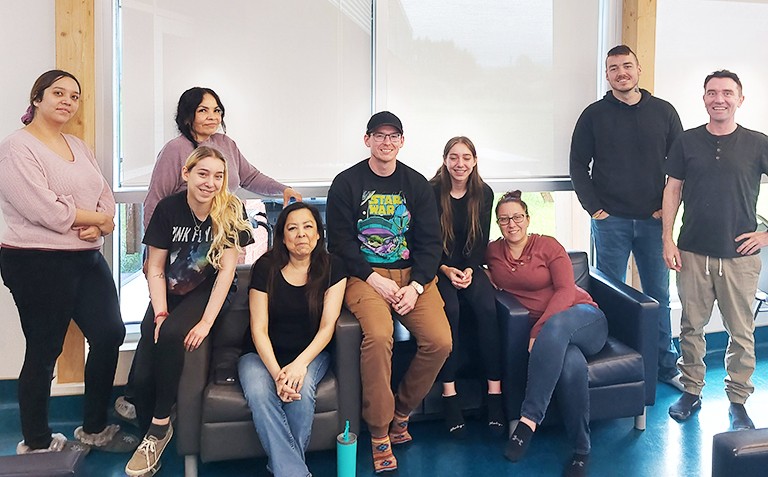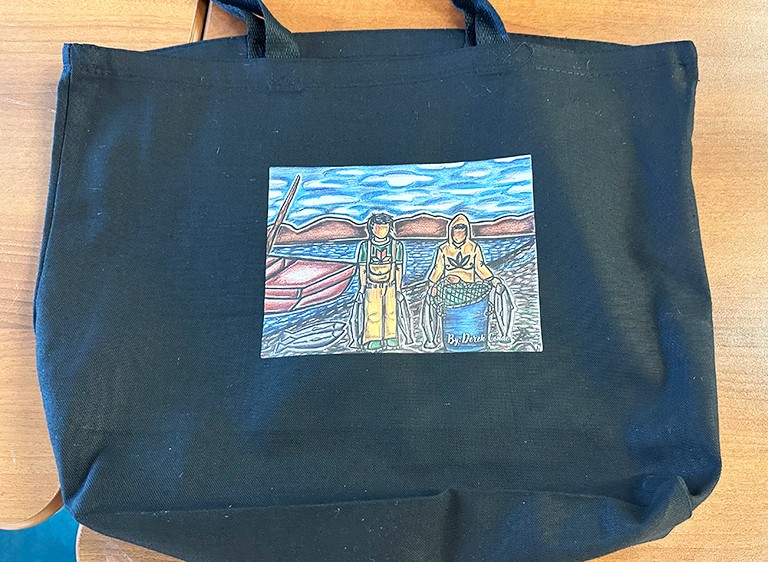Concordia Continuing Education offers lifelong learning opportunities to Indigenous youth workers in Listuguj
 Staff from the Gignu Rehabilitation Centre in Listuguj.
Staff from the Gignu Rehabilitation Centre in Listuguj.
Concordia Continuing Education (CCE) has helped develop an 18-month training program for a team of workers in the Mi’gmaq community of Listuguj on the Gaspé peninsula in Quebec. The initiative is a collaboration with Boscoville, a non-profit organization that develops best-practice-based programs in psychosocial and intervention work for practitioners who work with youth.
The 100-hour program, which CCE began developing in 2021, is based on the principles of trauma-informed care. It provides workers at the Gignu Rehabilitation Centre in Listuguj with theoretical knowledge and practical tools to enhance the skills they use with their youth and families.
The training sessions include instruction, reflection circles, brainstorms, role-plays, group work, storytelling and other activities that emphasize relational learning.
This partnership with Boscoville is strongly aligned with CCE’s mission to collaborate with diverse local communities on projects that serve them. All the program’s graduates receive university recognition for their training, including the six people trained as part of the program’s first cohort this March.
The six graduates will now begin to train other workers with the goal of fostering a continuous learning environment and adapting the program to fit the needs of their community.
“We are very honoured to work closely with Boscoville to deliver and certify a program that is responsive to the Listuguj community,” says Sherry Blok, director of programs at CCE. “It speaks to Concordia’s commitment to providing an equitable and inclusive future for all Quebecers and opening our doors to enlarge our Concordia community across the province.”
 Locally designed and made gift tote bag given by the centre to each graduate.
Locally designed and made gift tote bag given by the centre to each graduate.
‘Starting from cultural strengths is crucial’
Boscoville representatives consulted directly with members of the Listuguj community to co-create a curriculum that would best serve their cultural needs before CCE formalized the curriculum and evaluation criteria. Tim Harbinson, who works in program deployment for Boscoville, facilitated the relationship between CCE and the Gignu Centre.
“The program helped in instilling confidence that the services they offer are already at a high standard,” Harbinson says. “It added a level of understanding and some concrete tools that will help sustain good practices over time and improve the usual challenges in the social care field — principally staff turnover — as well as create a consistency of response across all of the services that the youth and families use.”
Trisha Barnaby, manager of the Gignu Centre, reveals that her team’s two biggest barriers are language and geographical remoteness. “So it was really helpful to have resources provided in our home community and in English,” she says.
“The training program really helped to instill confidence in our team that we are on the right track with the work that we do. And the training content offered us a different perspective and some extra tools to keep us mindful of the ways that we work,” she adds.
“We all really appreciated the program and are seeing positive changes here as a result.”
Elizabeth Fast, associate professor of applied human sciences at Concordia and past member of the Indigenous Directions Leadership Council, also served as a consultant on the development of the program. She helped ensure the learning activities and program materials were culturally safe and relevant.
“Having the support of an Indigenous researcher was essential in ensuring our theoretical content was appropriate and culturally adapted,” Harbinson says.
“Starting from cultural strengths is crucial. It is also important to be transparent about the historical oppression that is inherent in our systems when it comes to social services and First Nations communities.”
Boscoville also opened access to a greater diversity of students by situating the trainings within the workers’ home communities.
“It is so important that the trainings be in the community because it means that we can all eat together, share informal time and build the necessary relationships of trust and confidence,” Harbinson notes.
“Being in the community also means that staff do not have to leave their families and their cherished homes in order to have access to learning opportunities.”
Find out more about Concordia Continuing Education.




